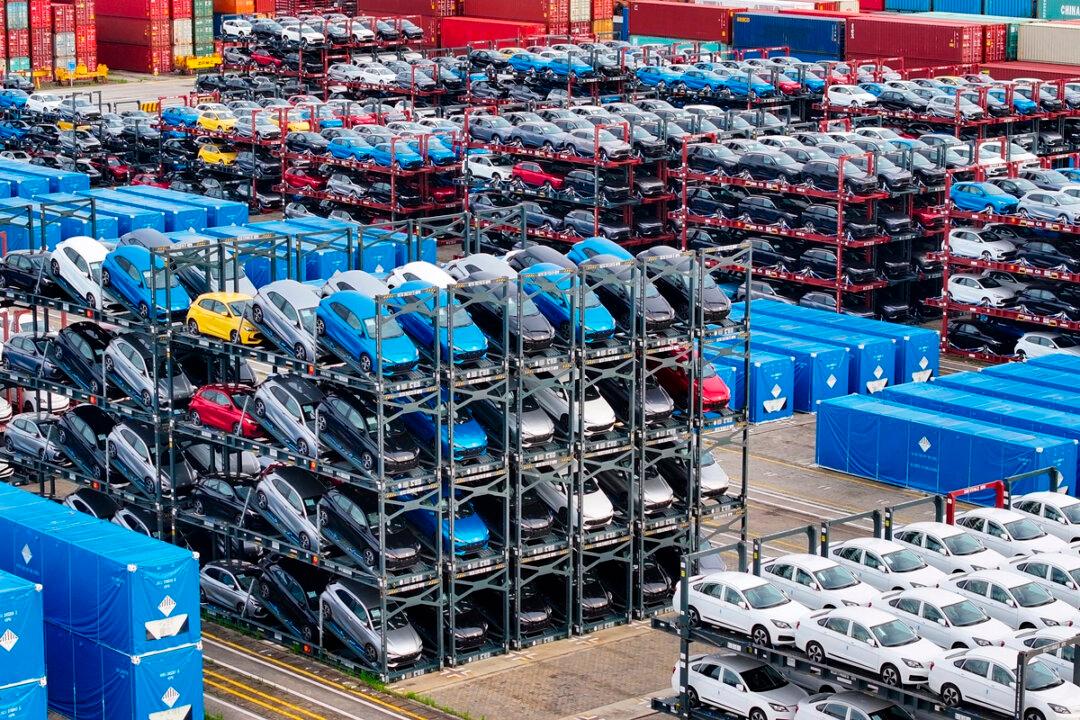Sharp tariff hikes on imports from China, including a 100 percent duty on electric vehicles, will take effect on Sept. 27, the Biden administration confirmed on Aug. 13.
The Office of the U.S. Trade Representative (USTR) confirmed most of the increased rates that the White House had announced in May, with some adjustments to the list.





